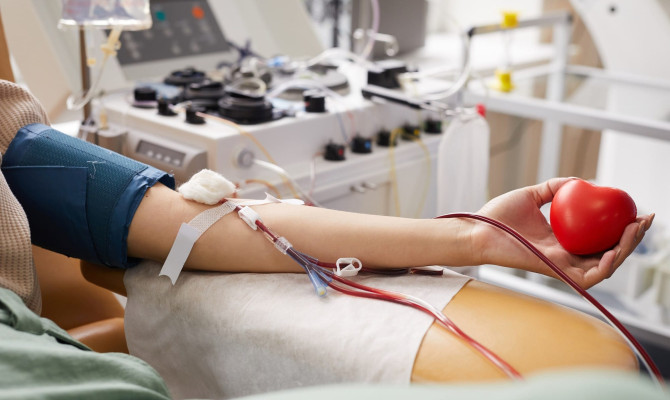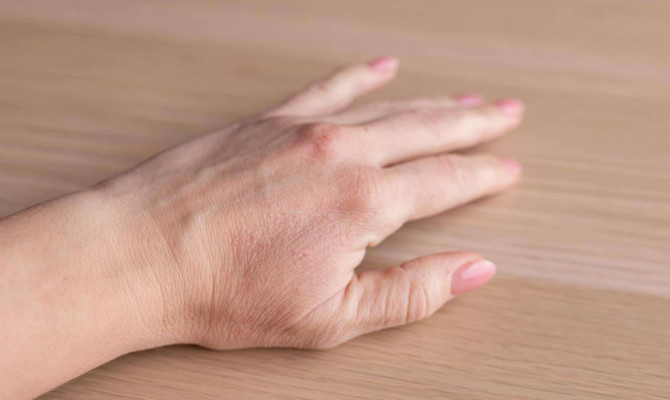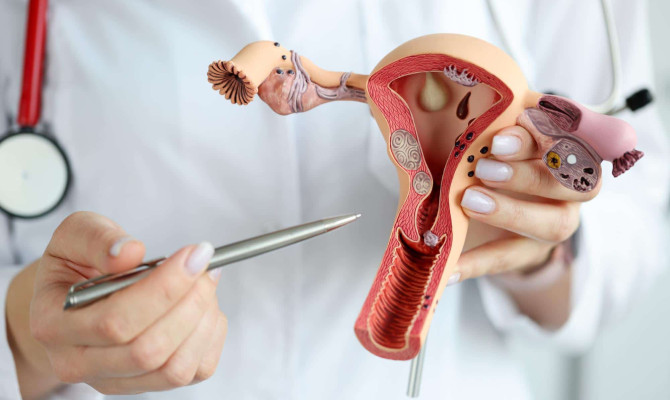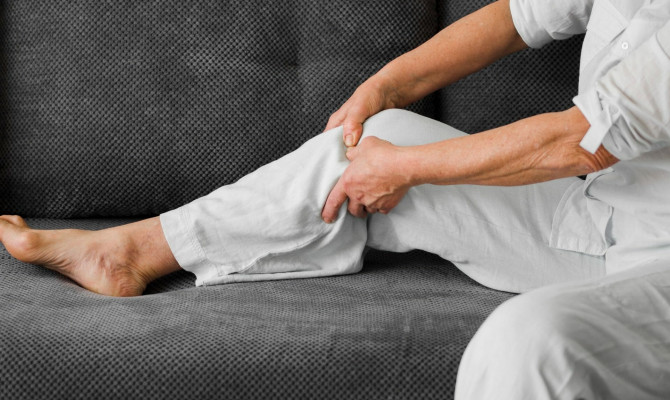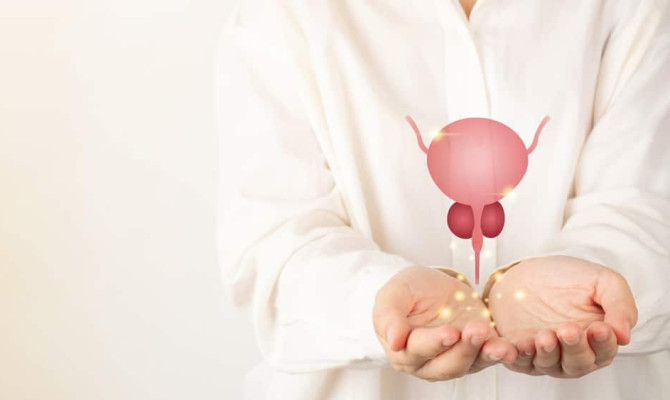Erectile dysfunction : A General Overview

- Erectile dysfunction
- 16 Aug 2023
Overview
What is Erectile dysfunction ?
Erectile dysfunction (ED) is the inability to maintain an erection of sufficient firmness to engage in fulfilling sexual activity.
The effects of erectile dysfunction might be temporary or chronic.1Overview | Researched based study from Niddk.nih.gov You are experiencing Erectile dysfunction when you
- Can occasionally get an erection, but not whenever you want to have intercourse
- Can acquire an erection, but do not survive long enough to have fulfilling and satisfying intercourse
- Fail to achieve an erection under any situation

Causes
Causes of erectile dysfunction
Physical causes of erectile dysfunction
The penis does not receive enough supply of blood.
- Hardened arteries, heart disease, and smoking are only some of the health problems that might decrease blood flow to the penis.1Causes | Researched based study from Niddk.nih.gov
The penis cannot retain blood during an erection
- Any age is vulnerable to this problem.
The penis does not receive any brain or spinal cord-derived nerve impulses
- The penis’s nerves can be damaged by conditions, injuries, or procedures affecting the pelvic region.
- Penal small vessel disease or nerve injury can be brought on by diabetes.1Causes | Researched based study from Niddk.nih.gov
Any treatment or therapy
- Radiation therapy for pelvic cancer can impair erectile function.
- Erectile dysfunction is a common side effect of treatment for prostate, colon-rectal, and bladder cancers.1Causes | Researched based study from Niddk.nih.gov
Psychological causes of Erectile dysfunction
- Depression
- Anxiety
- Relational strife
- Tensions in societal, cultural, and religious spheres
- Stress over one’s sexual abilities
Lifestyle-related causes of Erectile dysfunction
Possible contributors to Erectile dysfunction from the health aspects include as follows:1Causes | Researched based study from Niddk.nih.gov
- Addiction to nicotine and alcohol
- Using illicit substances
- Being overweight
- Lack of exercise
Health-related causes of Erectile dysfunction
Erectile dysfunction can be caused by any of the following medical issues:
- Type 2 diabetes
- Cardiovascular disease, and stroke
- Hypertension
- Chronic renal disease
- Multiple sclerosis
- Peyronie’s disease
Pharmacological (Medicine side effects) causes
Many commonly used medications can cause Erectile dysfunction, including:2Causes | Researched based study from Urologyhealth.org
- Hypertension medications
- Antiandrogens
- Drugs used to treat prostate cancer.
- Drugs for depression
- Medications that induce drowsiness or calmness (known as tranquilizers or prescription sedatives)
- Medications that reduce appetite
- Ulcer drugs
Types
Types of Erectile dysfunction
Organic Erectile Dysfunction
- The majority of cases of erectile dysfunction, particularly in older men, are due to organic causes, which entail anomalies in the penile arteries, veins, or both.3Types | Researched based study from Hopkinsmedicine.org
- Arterial issues often stem from arteriosclerosis, or hardening of the arteries, however arterial trauma can also play a role.
- Cavernous smooth muscle in the penis is seen by many experts to be the site of the difficulty when it comes to maintaining an erection, since atrophy (a partial or total fading away of tissue) and fibrosis (the growth of extra tissue) of this muscle can cause erection issues.
This is now thought to be an early sign of atherosclerosis and vascular disease.
Premature Ejaculation (PE)
- Ejaculating before or within a minute after vaginal penetration is a hallmark of the male sexual disorder known as premature ejaculation.
- Negative personal effects, such as anxiety, trouble, frustration, and/or avoiding sexual intimacy, associated with an inability to delay ejaculation on all or virtually all vaginal penetrations.
There are two major types of premature ejaculation3Types | Researched based study from Hopkinsmedicine.org
- Lifelong premature ejaculation: The patient has had premature ejaculation ever since they started engaging in sexual activity.
- Acquired premature ejaculation: The patient with acquired premature ejaculation had a history of healthy sexual encounters before suddenly developing the condition.
- Fear of performance: Psychogenic ED, or performance anxiety, is commonly brought on by emotional or mental strain.
Diagnosis
Diagnosis of Erectile dysfunction
The following are examples of potential Erectile dysfunction diagnostic procedures: 3Diagnosis | Researched based study from Hopkinsmedicine.org
Medical or sexual background of the patient
This may distinguish between issues with erection, ejaculation, orgasm, and sexual desire as well as disorders or diseases that contribute to impotence.
Medical history
- Your doctor will inquire about your family medical history and current habits.
- It’s quite helpful if you’re open about your drug use, smoking habits, and alcohol consumption.
- He or she will inquire as to the sources of your current anxiety.
- Communicate frankly with your doctor so that he or she can recommend the most effective course of therapy for you.
Sexual history
- If your doctor knows about your past experiences with ED, he or she will be able to determine if your issues stem from a lack of libido, difficulty achieving an erection, difficulty ejaculating, or difficulty reaching climax.
- It’s possible you’ll feel awkward or uncomfortable asking some of these questions. Your doctor will utilize your responses to determine the root of the problem and the most effective course of therapy.
- You might expect queries concerning mood disorders from your doctor. It’s possible that he or she will inquire about your romantic difficulties. Some medical professionals may also want to speak with your sex partner.
Body check-up
To search for indicators of widespread issues, such as:3Diagnosis | Researched based study from Hopkinsmedicine.org
- If the penis doesn’t normally react to specific touches, it might be indicative of a dysfunction in the neurological system.
- Hormonal issues, which affect the endocrine system, may be indicated by secondary sex traits like hair patterns.
- An aneurysm may signal difficulties with blood flow.
- The penis’s own peculiarities may point to the cause of impotence.
Laboratory tests
- Blood counts, lipid profiles, creatinine, urinalysis, and liver enzyme tests are all examples of tests performed for Erectile dysfunction.
- Testosterone levels are routinely checked in males with erectile dysfunction, especially those who have a history of low libido or diabetes.
Psychological and social testing
- This is done in an effort to better understand the potential mental blocks to performance.
- It is also possible to conduct an interview with the sexual partner in order to gain insight into their own expectations and experiences.
Other tests
Nocturnal erection test
- If you want to know if you have erections while you sleep, you can do a nocturnal erection test by wearing a plastic ring-like device around your penis.3Diagnosis | Researched based study from Hopkinsmedicine.org
- Typically, this is done in the comfort of one’s own home or at a specialized sleep lab.
- An electronic monitoring device is used in a more comprehensive version of this test to keep track of the frequency, duration, and intensity of erections.
A male often has three to five erections every night during deep sleep. If you are able to get an erection during either test, it indicates that your ED is not caused by a medical problem but rather a mental or emotional one.
Diagnostic injection
- A medical expert will inject a medication into your penis to induce an erection during an injection test, commonly known as an intracavernosal injection.3Diagnosis| Researched based study from Hopkinsmedicine.org
- A healthcare provider may opt to administer the medication by urethral insertion instead.
- The doctor will assess how long your erection lasts and how full your penis gets.
- Most of the time, these examinations are performed in a doctor’s office.
Treatment
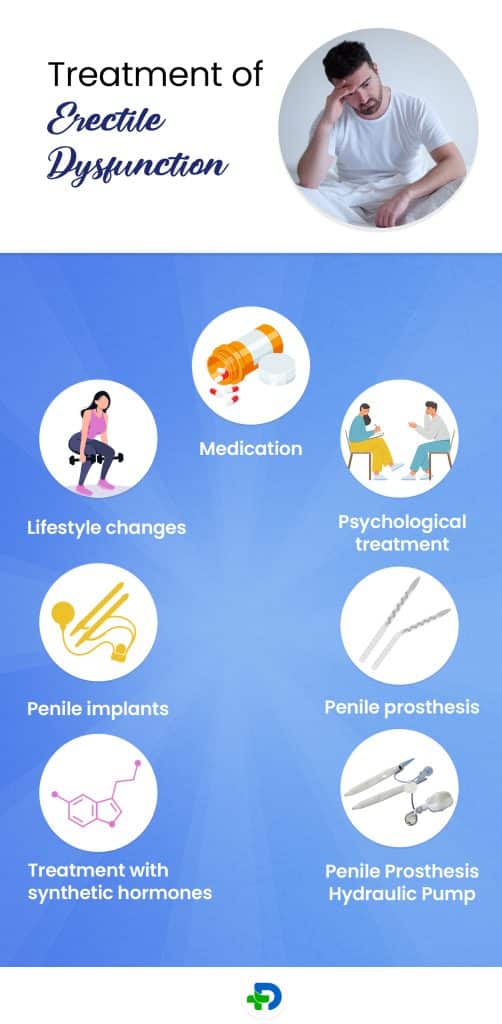
Treatment of Erectile dysfunction
Lifestyle changes
Some lifestyle adjustments may be recommended by your doctor to aid with Erectile dysfunction. You might be asked to:
- Stop smoking
- Reduce or eliminate your alcohol use
- Improve your fitness and stick to a healthy diet by doing more active tasks.
- End to drug abuse
- If you’re having problems making these adjustments on your own, medical professionals are available to help.
Psychological treatment
- If you think that mental or emotional factors contribute to your Erectile dysfunction, discuss seeing a counselor with your doctor.
- Sex-related tension and anxiety can be alleviated with the help of a counselor.
- Your therapist may recommend including your significant other in your therapy sessions.
- You and your therapist can work together to address the emotional factors contributing to your erectile dysfunction.
Medication
To help you develop and keep an erection, your doctor may recommend one of the following oral medicines:1Treatment | Researched based study from Niddk.nih.gov
- Viagra (sildenafil)
- Levitra, Staxyn, and vardenafil.
- Cialis (tadalafil)
- Stendra (avanafil)
All of these drugs have the same effect during sexual stimulation because they reduce tension in the smooth muscles and increase blood flow to the penis.
- If you’re taking nitrates for heart problems, you shouldn’t use any of these drugs to treat erectile dysfunction. Blood vessels are dilated and made more relaxed by nitrates.
- The combination might induce a fast decrease in blood pressure, which can make you feel faint or dizzy, and even cause you to fall and sustain injuries if you aren’t careful.
Treatment with synthetic hormones
- In elderly men with low testosterone levels, testosterone replacement treatment has been shown to boost energy, mood, bone density, the muscular mass, weight, and sexual attraction.
- Men with healthy, age-appropriate testosterone levels should avoid taking testosterone supplements to avoid the risk of prostate enlargement and other negative side effects.
- Creams, gels, patches, solutions, pellets, and injectables are all viable options for testosterone replacement treatment. 3Treatment | Researched based study from Hopkinsmedicine.org
Penile implants
- There are two implant types utilized for Erectile dysfunction treatment.3Treatment | Researched based study from Hopkinsmedicine.org
Penile Prosthesis Hydraulic Pump
- A pump and two cylinders are inserted into the penis, the erection chambers fill with saline solution, which induces an erection.
Penile prosthesis
- The penis’ erection chambers are manipulated into an erect or non-erect posture by inserting two semi-rigid yet flexible rods.
Prevention
Prevention of Erectile dysfunction
Stop smoking
- Heart and blood vessel disease, as a result of smoking, can cause erectile dysfunction. Smoking increases the risk of Erectile dysfunction, even after accounting for cardiovascular disease and other potential causes of Erectile dysfunction.1Prevention | Researched based study from Niddk.nih.gov
Adopt a balanced diet
- Erectile health can be supported by a diet rich in whole grains, low-fat dairy products, fruits, vegetables, and lean proteins.1Prevention | Researched based study from Niddk.nih.gov
- Stay away from foods that are heavy in salt and fat, especially saturated fat. Maintaining a healthy weight, blood pressure, and glucose levels can be achieved by adhering to a healthy food plan.
- You should also try to limit your alcohol intake.
Keep your weight within healthy limits
- Reducing your risk of developing diabetes and hypertension is another benefit of keeping your weight in check.1Prevention | Researched based study from Niddk.nih.gov
- Consult your medical professional about diabetes management or prevention.
- Check your blood pressure during frequent checks.
- Consult your doctor about a healthy weight loss plan if you feel you need to shed some pounds.
- If you want to reduce weight, you should consult a nutritionist for advice on how to create a healthy eating plan.
Exert yourself physically
- Regular exercise improves overall circulation, especially to the penis.1Prevention | Researched based study from Niddk.nih.gov
- Consult your doctor before beginning any new physical routine.
- Walking at a reasonable speed or gardening are two great hobbies for beginners to try out first.
- Moderate exercises, like brisk walking, can serve as a springboard to more strenuous ones, like running or swimming.
- Make 30 minutes of exercise a priority most days of the week.
Curb substance abuse
- The inability to get or maintain an erection is a possible side effect of using illicit substances.
- Some illicit substances, for instance, might lessen your ability to sense pleasure.
- Using illicit substances might mask the underlying causes of your Erectile dysfunction, such as emotional, psychological, or physiological issues.1Prevention | Researched based study from Niddk.nih.gov
Takeaway
Key Takeaways
- The male sexual ailment known as erectile dysfunction is quite prevalent. It’s a condition in which a person struggles to get or maintain an erection. Erectile dysfunction is increasingly prevalent with age.
- Some patients feel awkward discussing sexual health with their physicians. However, if you suffer from Erectile dysfunction, you should let your doctor know.
- Erectile dysfunction may indicate underlying health issues. It might be an indication of congested or blocked arteries. It might be a sign of diabetic nerve damage. These issues will worsen if you ignore them and avoid therapy.
- Many modern therapies exist for erectile dysfunction, which can be provided by your doctor. Taking a tablet is often all that’s needed to help Erectile dysfunction patients. Increased physical activity, weight loss, and quitting smoking have all been linked to improvements.
Any feedback on this article?
 This Articles content was accurate
This Articles content was accurate Very Informative Article
Very Informative Article I have a question or a comment
I have a question or a comment
 This article contains inaccurate content
This article contains inaccurate content This article was not helpful
This article was not helpful I have a question or a comment
I have a question or a comment
We appreciate your helpful feedback!
Checkout our social pages
References
-
National Institute of Diabetes and Digestive and Kidney Diseases
Erectile Dysfunction | Overview | Causes | Diagnosis | Treatment | Prevention
-
Urology Care Foundation
Erectile Dysfunction | Causes
-
Johns Hopkins Medicine
Erectile Dysfunction | Types | Treatment | Diagnosis












